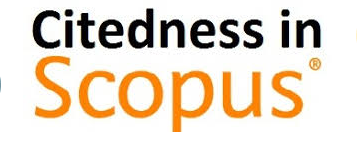Legal Protection for Tik Tok Shop Buyers: Comparison between China and Indonesia
DOI:
https://doi.org/10.18196/iclr.v5i2.17298Keywords:
Consumer Protection, Consumer Rights, E-commerce, TikTok Shop BuyersAbstract
The nature and scale of e-commerce are constantly changing. In today's world, the concept of internet purchasing became ubiquitous. All the purchases that consumers make is safeguarded by a set of policies in the form of rules imposed in each country; thus, the evolution of consumer protection is also inextricable from global influences. The term consumer protection refers to an umbrella term that encompasses many different aspects of economic transactions. The relevance of the law rests in the fact that the regulation works to protect individuals and the rights they are entitled to. In spite of the significance they have, customers frequently find themselves victimized by unethical commercial activities. This article describes the proliferation of E-commerce and the legal protection of the e-consumers who conduct buying and selling transactions, particularly in the TikTok Shop platform. This normative legal research relies on secondary data and employs both statutory and comparative approach. The finding shows that China has established a new law to safeguard and maximize a healthy shopping environment on an e-commerce platform. On the other side, Indonesia has not had a specific regulation for e-commerce yet, accordingly the legal protection for Tik Tok Shop buyers relies to the existing law, namely the Law No. 8 of 1999 concerning consumer protection.The nature and scale of e-commerce are constantly changing. In today's world, the concept of internet purchasing became ubiquitous. All the purchases that consumers make is safeguarded by a set of policies in the form of rules imposed in each country; thus, the evolution of consumer protection is also inextricable from global influences. The term consumer protection refers to an umbrella term that encompasses many different aspects of economic transactions. The relevance of the law rests in the fact that the regulation works to protect individuals and the rights they are entitled to. In spite of the significance they have, customers frequently find themselves victimized by unethical commercial activities. This article describes the proliferation of E-commerce and the legal protection of the e-consumers who conduct buying and selling transactions, particularly in the TikTok Shop platform. This normative legal research relies on secondary data and employs both statutory and comparative approach. The finding shows that China has established a new law to safeguard and maximize a healthy shopping environment on an e-commerce platform. On the other side, Indonesia has not had a specific regulation for e-commerce yet, accordingly the legal protection for Tik Tok Shop buyers relies to the existing law, namely the Law No. 8 of 1999 concerning consumer protection.References
Agustiawan, M Hendri, Khoirul Umam, and Mohammad Maleka, ‘The Importance of Consumer Protection Law Revision in the Development of E-Commerce in the Digital Transformation Era in Indonesia’, Proceedings of Islamic Economics, Business, and Philanthropy, 1.2 (2022), 305–17 https://jurnalfebi.iainkediri.ac.id/index.php/proceedings/article/view/249
Al Tamer, Majed, ‘The Advantages and Limitations of E-Commerce to Both Customers & Businesses’, BAU Journal-Creative Sustainable Development, 2.2 (2021), 6 https://doi.org/10.54729/2789-8334.1043
Andreya, Ericha, ‘Upaya Kominfo Berantas Aksi Penipuan Transaksi Online’ https://aptika.kominfo.go.id/2022/10/upaya-kominfo-berantas-aksi-penipuan-transaksi-online/ [accessed 6 December 2022]
Anggara, Sahya, and Zang Cao, ‘E-Commerce in Singapore and Indonesia: Comparison of Policies’, International Journal of Science and Society, 1.1 (2019), 12–23 https://doi.org/10.54783/ijsoc.v1i1.6
Asosiasi Penyelenggara Jasa Internet Indonesia, Profil Internet Indonesia 2022 (APJII, 2022) https://apjii.or.id/content/read/39/559/Laporan-Survei-Profil-Internet-Indonesia-2022 [accessed 22 October 2022]
Azzery, Yasep, ‘Analysis of E-Commerce Growth in the Industrial Age 4.0 in Indonesia’, International Journal of Engineering Continuity, 1.1 (2022), 1–8 https://doi.org/10.58291/ijec.v1i1.33
Calcagni, Fulvia, Júlia Nogué Batallé, Francesc Baró, and Johannes Langemeyer, ‘A Tag Is Worth A Thousand Pictures: A Framework for an Empirically Grounded Typology of Relational Values Through Social Media’, Ecosystem Services, 58 (2022), 101495 https://doi.org/10.1016/j.ecoser.2022.101495
Chen, Yiting, ‘Research on Douyin as an E-Commerce Platform Impacts the Buying Decisions of Users’, Highlights in Business, Economics and Management, 2 (2022), 395–400 https://doi.org/10.54097/hbem.v2i.2393
Dahlia, Dahlia, ‘Perlindungan Konsumen Terhadap Transaksi Jual Beli Melalui Media Internet (E-Commerce)’, Jurnal Wacana Hukum, 8.1 (2009), 23540 https://doi.org/10.33061/1.jwh.2009.8.1.321
Feld, Harold, ‘The Case for the Digital Platform Act: Market Structure and Regulation of Digital Platforms’, Roosevelt Institute, 2019
Feng, Yifan, ‘Research on Live E-Commerce Based on Digital Marketing: Tiktok E-Commerce Live Streaming as an Example’, Highlights in Business, Economics and Management, 2 (2022), 125–30 https://doi.org/10.54097/hbem.v2i.2348
Fenwick, Mark, Erik P. M. Vermeulen, Toshiyuki Kono, and Tronel Joubert, Organizing-for-Innovation: Corporate Governance in a Digital Age (Singapore: Springer, 2023)
GlobalData.com, ‘China Continues to Lead Global E-Commerce Market with over $2 Trillion Sales in 2022, Says GlobalData’, 9 August 2022 https://www.globaldata.com/media/banking/china-continues-to-lead-global-e-commerce-market-with-over-2-trillion-sales-in-2022-says-globaldata/ [accessed 14 December 2022]
Graef, Inge, and Sean Van Berlo, ‘Towards Smarter Regulation in the Areas of Competition, Data Protection and Consumer Law: Why Greater Power Should Come With Greater Responsibility’, European Journal of Risk Regulation, 12.3 (2021), 674–98 https://doi.org/10.1017/err.2020.92
Halim, Etania Fajarani, ‘Perlindungan Hukum Data Pribadi Pembeli Di Perdagangan Secara Elektronik (E-Commerce) Di Indonesia [Legal Protection of Buyer’s Personal Data in E-Commerce in Indonesia]’, Jurnal Hukum Visio Justisia, 2.1 (2022), 1–22 http://dx.doi.org/10.19166/vj.v2i1.5190
Han, Jing, and Taehee Lee, ‘The Influence Factors of China’s Cross-Border E-Commerce Export Trade Using Gravity Model’, Journal of Korea Trade (JKT), 26.5 (2022), 56–75
Hu, Yingjia, ‘Research on the Commercial Value of Tiktok in China’, Academic Journal of Business & Management, 2.7 (2020), 57–64 https://doi.org/10.25236/AJBM.2020.020706
Kaye, D Bondy Valdovinos, Xu Chen, and Jing Zeng, ‘The Co-Evolution of Two Chinese Mobile Short Video Apps: Parallel Platformization of Douyin and Tiktok’, Mobile Media & Communication, 9.2 (2021), 229–53 https://doi.org/10.1177/2050157920952120
Koksalmis, Gulsah Hancerliogullari, and Ayca Gozudok, ‘What Impacts E-Commerce Acceptance of Generation Z? A Modified Technology Acceptance Model’, Recent Advances in Technology Acceptance Models and Theories, 2021, 57–77 https://doi.org/10.1007/978-3-030-64987-6_5
Lilly, Juliana, David Durr, Allan Grogan, and Janice Francis Super, ‘Wells Fargo: Administrative Evil and the Pressure to Conform’, Business Horizons, 64.5 (2021), 587–97 https://doi.org/10.1016/j.bushor.2021.02.028
Liu, Haining, ‘Rapid Development of Douyin Will Have a Great Threat to Taobao and Subvert the Industry Pattern’ (presented at the 2022 7th International Conference on Financial Innovation and Economic Development (ICFIED 2022), Atlantis Press, 2022), pp. 2562–68 https://doi.org/10.2991/aebmr.k.220307.418
Lyu, Meijie, ‘Opportunities and Reflections of Paying for Knowledge Online in the Context of E-Commerce Live Streaming’ (presented at the 2022 7th International Conference on Modern Management and Education Technology (MMET 2022), Atlantis Press, 2022), pp. 458–65 https://doi.org/10.2991/978-2-494069-51-0_63
Mak, Vanessa, and Evelyne Terryn, ‘Circular Economy and Consumer Protection: The Consumer as a Citizen and the Limits of Empowerment through Consumer Law’, Journal of Consumer Policy, 43.1 (2020), 227–48 https://doi.org/10.1007/s10603-019-09435-y
Mangku, Dewa Gede Sudika, Ni Putu Rai Yuliartini, I Nengah Suastika, and I Gusti Made Arya Suta Wirawan, ‘The Personal Data Protection of Internet Users in Indonesia’, Journal of Southwest Jiaotong University, 56.1 (2021)
Maskuroh, Nihayatul, Mochammad Fahlevi, Dasih Irma, R Rita, and A Rabiah, ‘Social Media as a Bridge to E-Commerce Adoption in Indonesia: A Research Framework for Repurchase Intention’, International Journal of Data and Network Science, 6.1 (2022), 107–14 https://doi.org/10.5267/j.ijdns.2021.9.017
Pradnyaswari, Ida Ayu Eka, and I Ketut Westra, ‘Upaya Perlindungan Hukum Bagi Konsumen Dalam Transaksi Jual Beli Menggunakan Jasa E-Commerce’, Jurnal Kertha Semaya, 8.5 (2020) https://ojs.unud.ac.id/index.php/kerthasemaya/article/view/59414
Qin, Di, Zhaonan Mu, and Sijialu Yue, ‘The Value Orientation of Electronic Commerce Law Based on Computer Network’ (presented at the MATEC Web of Conferences, EDP Sciences, 2022), CCCLXV, 01030 https://doi.org/10.1051/matecconf/202236501030
Ranto, Roberto, ‘Tinjauan Yuridis Perlindungan Hukum Terhadap Konsumen Dalam Transaksi Jual Beli Melalui Media Elektronik’, Jurnal Ilmu Hukum: ALETHEA, 2.2 (2019), 145–64 https://doi.org/10.24246/alethea.vol2.no2.p145-164
Ratu, Elizabeth Putrinda, Joy Elly Tulung, and Lawren Julio Rumokoy, ‘The Impact of Digital Marketing, Sales Promotion, and Electronic Word of Mouth on Customer Purchase Intention at Tiktok Shop’, Jurnal EMBA: Jurnal Riset Ekonomi, Manajemen, Bisnis Dan Akuntansi, 10.4 (2022), 149–58 https://doi.org/10.35794/emba.v10i4.43705
Romindo, Romindo, Muttaqin Muttaqin, Didin Hadi Saputra, Deddy Wahyudin Purba, M Iswahyudi, Astri Rumondang Banjarnahor, and others, E-Commerce: Implementasi, Strategi Dan Inovasinya (Yayasan Kita Menulis, 2019)
Sensuse, Dana Indra, Rini Juliana Sipahutar, Resty Kurnia Jamra, and Ryan Randy Suryono, ‘Challenges and Recommended Solutions for Change Management in Indonesian E-Commerce’ (presented at the 2020 International Conference on Information Technology Systems and Innovation (ICITSI), IEEE, 2020), pp. 250–55 https://doi.org/10.1109/ICITSI50517.2020.9264950
Shaik, Dilshad, and Ms V Poojasree, ‘Consumer Protection in E-Commerce: A Legal and Compliance Framework in the Digital Market’ (presented at the 1st International Conference on Law and Human Rights 2020 (ICLHR 2020), Atlantis Press, 2021), pp. 18–23 https://doi.org/10.2991/assehr.k.210506.004
Soo, Zen, ‘How China’s New e-Commerce Law Will Affect Consumers, Operators. South China Morning Post’, 1 January 2019 https://www.scmp.com/tech/apps-social/article/2180194/heres-how-chinas-new-e-commerce-law-will-affect-consumers-platform [accessed 17 December 2022]
Tarigan, Mitra, ‘Pengguna TikTok Di Indonesia Kedua Di Dunia, Cocok Untuk Kampanye Marketing’, 7 August 2022 https://gaya.tempo.co/read/1620184/pengguna-tiktok-di-indonesia-kedua-di-dunia-cocok-untuk-kampanye-marketing
Thomas, Kristie, ‘Analysing The Notion of ‘Consumer’in China’s Consumer Protection Law’, The Chinese Journal of Comparative Law, 6.2 (2018), 294–318 https://doi.org/10.1093/cjcl/cxy010
Trevino, Linda K, and Katherine A Nelson, Managing Business Ethics: Straight Talk About How To Do It Right (John Wiley & Sons, 2021)
Wang, Jufang, ‘From Banning to Regulating TikTok: Addressing Concerns of National Security, Privacy, and Online Harms’, Policy Brief. The Foundation for Law, Justice and Society, 2020
Yuniar, Ananda Dwitha, and Alan Sigit Fibrianto, ‘The Affect of Technical Familiarity and Consumer Protection Behavior in Using E-Commerce as Platform Online Shopping’ (presented at the 2019 International Seminar on Application for Technology of Information and Communication (iSemantic), IEEE, 2019), pp. 300–305 https://doi.org/10.1109/ISEMANTIC.2019.8884265
Zheng, Xiang, and Zhixiong Liao, ‘Consumer Law and Practice in China: A Critique on The 20-Year Experience and the Recent Amendment Bill’, IJCLP, 1 (2013), 1
Zhou, Xiaoqian, ‘Research on the Development Prospect of E-Commerce Live Broadcast Based on SWOT Analysis’, Highlights in Business, Economics and Management, 2 (2022), 131–35 https://doi.org/10.54097/hbem.v2i.2350
Downloads
Published
Issue
Section
License
By publishing with Indonesian Comparative Law Review, authors agree to the following terms:
1. Authors retain the copyright to their work and grant Indonesian Comparative Law Review the right of first publication, while also licensing the work under a Creative Commons Attribution License (CC BY 4.0). This license permits others to share the work, provided they acknowledge the author and the initial publication in this journal.
2. Authors may enter into separate agreements for non-exclusive distribution of the published version of their work, such as posting it to an institutional repository or including it in a book, with acknowledgement of its initial publication in this journal.
3. Authors are encouraged to share their work online, for example on institutional repositories or personal websites, both before and during the submission process. This practice can lead to productive exchanges and increased citation of published work.



